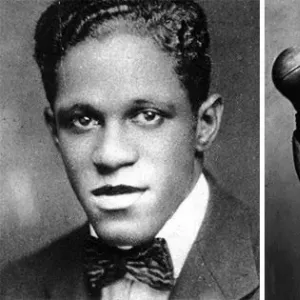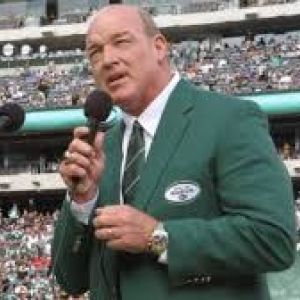Who is Fritz Balogh?
Fritz Balogh was a footballer from Germany. DSK Preßburg was Fritz Balogh’s first club. In 1941, he joined Hertha BSC as a wartime guest player.
He worked as a supporting actor in the late summer of 1941. It happened while filmmaker Robert Adolf Stemmle was filming “The Big Game.” On July 10, 1942, it had its global premiere at Berlin’s Capitol am Zoo cinema.
Fritz Balogh- Birth, Parents, Siblings & Education
Fritz Balogh was born in Bratislava, Czechoslovakia, on December 16, 1920. He was of German descent. In addition, he was born under the sign of Sagittarius. There is no other information about his parents, childhood, or educational background accessible.
Balogh was killed after he fell from a moving train on his way back from a 3: 5 loss to FC Bayern Munich on Sunday, January 14, 1951, at approximately 9:30 p.m. Fritz died while he was only 30 years old.

Facts of Fritz Balogh
| Full Name: | Fritz Balogh |
| Age: | 101 years |
| Birthday: | 16 Dec, 1920 |
| Birthplace: | Bratislava, Czechoslovakia |
| Nationality: | German |
| Gender: | Male |
| Horoscope: | Sagittarius |
| Girlfriend: | N/A |
| Net Worth: | N/A |
| Height: | N/A |
| Profession: | Footballer |
| Sibling: | N/A |
Fritz Balogh- Relationship, Married Life, Boyfriend/ Girlfriend
There is no information on Fritz’s relationship status.
Body Measurement- Height, Weight, Hair Colour
Fritz has a muscular build. His bodily dimensions, as well as his height, weight, dress size, and shoe size, remain unknown. We can see he had blue eyes and brown hair, though.
Fritz Balogh- Professional Career
In 1933, as a 13-year-old, Fritz Balogh started the German Sports Club Bratislava. He was promoted to the first team during the 1939/40 season. For that, he contested point games in the City League Bratislava, won the German Cup Carpathian at the end of the season, and thereafter represented the team in the city selection. He ended up in Berlin during WWII.
He started the game with Hertha BSC’s third squad, but was shortly “promoted” to the first team. He was a member of the Berlin team. As a result, under coach Hans Sauerwein, he was the team’s leading scorer.
Fritz also scored 22 goals in three games in the last round of the 1944 German Championship Gauliga Berlin-Brandenburg – one of 16 spiked Gauligen in the era of National Socialism as a uniform and top league in the German Reich – 19 point games.
He scored two goals in the game. On July 13, 1941, he lost 1: 2 to Blau-Weiß 90 Berlin in the first final round of the Tschammerpokal, a cup competition for club teams.
The half-left started playing football for Mannheim district team VfL Neckarau in 1945, and at the end of the season, he had been promoted to the Oberliga Süd.
He played for Phönix Ludwigshafen in the summer of 1946 and VfB Neunkirchen at the start of the 1946/47 season, but he returned to Neckarau in the current season and finished second in the league with 32 goals, behind Hans Pöschl and ahead of Max Morlock (both 1. FC Nürnberg).
Even after the team was relegated to the second-tier national league at the end of the 1947/48 season and u. a. the VfB Mühlburg, Balogh remained faithful to the club for family reasons.
Around him, the FSV Frankfurt players attempted to turn him into a prolific player. Before the 1950/51 season, he assisted the squad in returning to the Oberliga Süd. At the time, it was one of the top five German leagues.
He played for VfL Neckarau from 1945 until 1951, scoring 66 goals in 96 points games. He was featured in the senior national team’s first international match following World War II on November 22, 1950.
The Swiss national team’s discharged comparison was then terminated in Stuttgart Neckar Stadium by Herbert Burdenski’s penalty turned goal after 42 minutes with 1: 0th.
His single outing in a DFB shirt lasted for 90 minutes, making him the only national player to ever play for VfL Neckarau.
He worked as a supporting actor in the late summer of 1941. It happened while filmmaker Robert Adolf Stemmle was filming “The Big Game.” On July 10, 1942, it had its global premiere at Berlin’s Capitol am Zoo cinema.
Also Read: Bonnie Dupree, Katie Fehlinger, Jodi Saeland, Tucker Barnes
Quick Facts of Fritz Balogh
- He joined Hertha BSC as a wartime guest player in 1941.
- Fritz Balogh was born on December 16, 1920, in Bratislava, Czechoslovakia.
- Balogh was loyal to the club for family reasons, even when it was relegated to the second-tier national league at the end of the 1947/48 season and u. a. the VfB Mühlburg.
- He helped the team return to the Oberliga Süd before the 1950/51 season.
- From 1945 to 1951, he was a member of VfL Neckarau, where he scored 66 goals in 96 point games.



